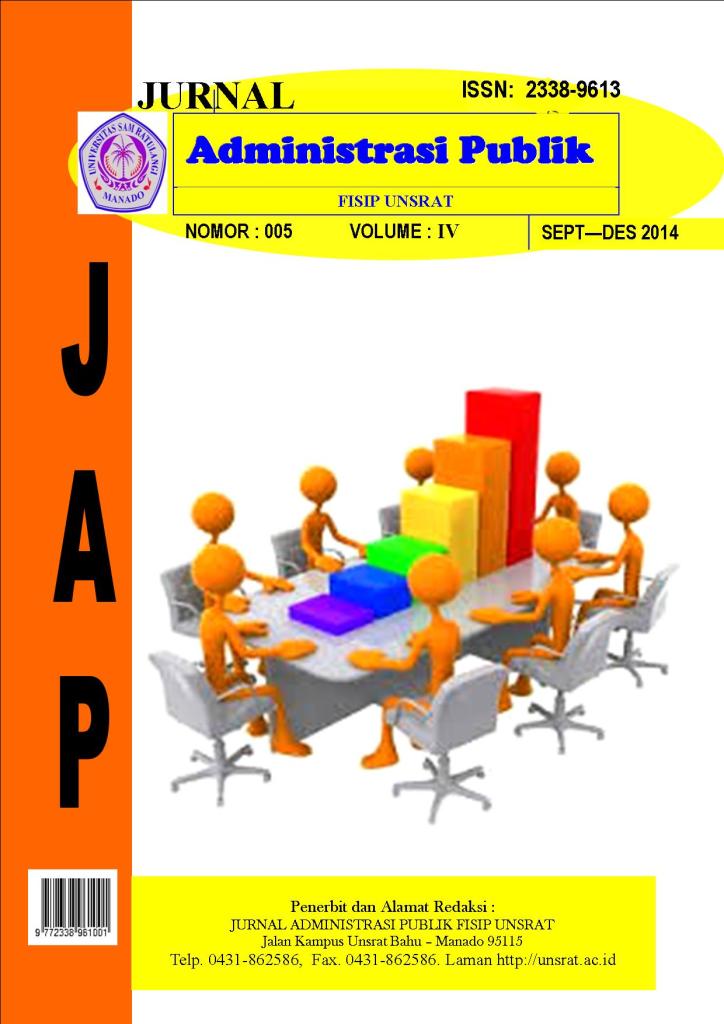PENGARUH IKLIM ORGANISASI TERHADAP PRESTASI KERJA PEGAWAI PADA SEKRETARIAT DAERAH KABUPATEN HALMAHERA TENGAH
Abstract
This researchmoved from themain problems, namely: the extent to which organizationalclimate on the performanceof employeesat the District Secretariatof Central Halmahera. Thus, this
researchaims: toanalyze the influence oforganizational climateon the performanceof employeesat the District
Secretariatof Central Halmahera.
This study uses aquantitative approach to the application of descriptive and explanatory. And
information collected through questionnaires distributed to the technique 72 respondents, and is equipped
with observation and documentation techniques, and then analyzed by applying a frequency table analysis
technique, the product moment correlation and simple linear regression.
Based on the analysisof data, it is known that: the results of a descriptive analysis of the technique of
analysis tables (frequency tables) it is known that the distribution of respondents' answers to the
Organizational Climate variables are in the category of "medium" to "low", but the dominant categorized
"moderate" or medium with mean average performance of 56.09%, while the performance varies from
moderateto high,but it tends to be inthe category of "moderate" with an average performance of 69.40%.
Thus, it can be concluded that the Organization Climate has the positive and significant effecton the
performance of employees and are contributive. This means that it is empirically Climate organizations
contribute significantly and substantially to the work performance of employees, particularly at the Regional
Secretary (Secda) of Central Halmahera.
Keywords: Organizational Climate, Employee Job Performance
Downloads
Published
2018-04-03
How to Cite
UMASANGADJI, F., LENGKONG, F. D., & OGOTAN, M. (2018). PENGARUH IKLIM ORGANISASI TERHADAP PRESTASI KERJA PEGAWAI PADA SEKRETARIAT DAERAH KABUPATEN HALMAHERA TENGAH. JURNAL ADMINISTRASI PUBLIK, 4(5). Retrieved from https://ejournal.unsrat.ac.id/v3/index.php/JAP/article/view/5874
Issue
Section
artikel








